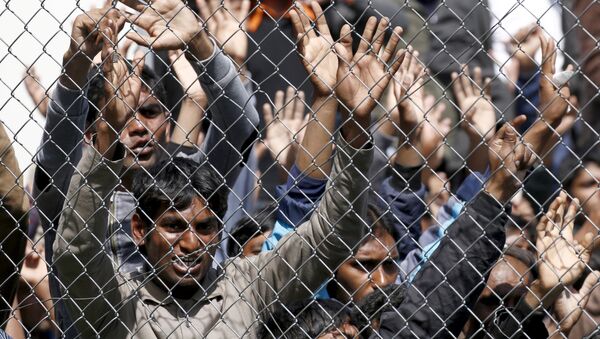Amnesty has already slammed the EU for failing to put the situation of refugees suffering in appalling conditions in Greece higher up their agenda at their meeting, December 15. Amnesty says current EU migrant policy risks migrants "being used as human currency." Amnesty International and other NGOs, including the EU Fundamental Rights Agency have also condemned the lack of action over migrant children, many of whom arrive on European shores without a relative.
Separated #migrant #children at risk of abuse in the #EU. More guidance + info are needed to improve safeguards: https://t.co/yCNfRcK3Nr pic.twitter.com/Y7K0hyY5Tj
— EU FundamentalRights (@EURightsAgency) 21 December 2016
EU leaders only had time for a short consideration of the refugee crisis in Greece, in the context of the controversial EU-Turkey migrant deal, under which "irregular migrants " — those refused asylum — are returned to Turkey. After the meeting, the leaders said, simply, they: "reiterated their commitment to a full implementation of EU-Turkey Statement on migration."
"We are deeply disappointed and very concerned that — despite the fact that over 16,000 men, women and children are living in appalling conditions on the Greek islands — EU leaders did not consider that serious enough to merit attention at the Council," Iverna McGowan, Director of Amnesty International's European Institutions Office told Sputnik.
'Obvious to Everyone'
However, the EU has come in for further criticism over its plans to provide financial, development assistance and trade ties no non-EU states — such as Turkey, Lebanon and Jordan — in return for the country agreeing to prevent irregular migration and allow the return of people who have tried to seek asylum in Europe.

"Officially the EU and member states deny any causal link between agreeing big bucks to be handed over for development and other assistance and the coincidental signing of migration agreements within days or weeks of said financial promises. The truth of the matter however is obvious to everyone," McGowan wrote in an opinion piece for EU Observer.
McGovern wrote of a young Afghan man living in appalling conditions at Moria camp who she met recently on Lesbos asked with despair in his eyes: "Is it true my government took money from the EU so they could have an excuse to send me back?
"The facts and figures betray an awkward truth that in the face of one of the world's worst refugee crises the EU and its member states are engaging in a policy of responsibility-shirking, not sharing," she wrote.
#Migration compacts and dodgy #refugee deals are NOT a solution to ppl arriving at our borders. https://t.co/U6F6Sp81HJ @AmnestyEU pic.twitter.com/yjwuzBX28N
— Florian Oel (@florianoel) 4 January 2017
"This is the EU Turkey deal. Noori — a Syrian refugee being held in a police station on the Greek Island of Lesbos, waiting anxiously to hear if he will be sent to Turkey — risks being used as human currency, in the EU's foreign policy exchange where rights are traded in for short-sighted political gains," wrote McGowan.


